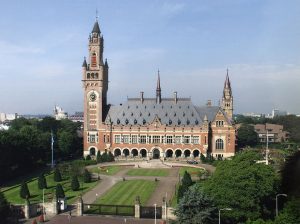By: Neha Chhablani
Visiting Impunity Watch News Writer
STRASBOURG, France – On January 18, 2024, the European Parliament adopted three resolutions regarding recent human rights violations in China, Sudan, and Tajikistan. Members of the European Parliament (MEPs) condemned the repression of religious freedom in China, the ongoing conflict and resulting food insecurity in Sudan, and Tajikistan’s crackdown on independent media.
 |
According to the European Parliament’s resolution, China has engaged in systematic persecution of the religious group Falun Gong since 1999. This includes frequent unwarranted detainment and reported exposure to psychological abuse, physical torture, and organ harvesting.
On May 12, 2023, Falun Gong practitioners Ding Yuande and his wife Ma Ruimei were arrested without a warrant. While Ma Ruimei was released on bail, Ding Yuande remained incarcerated for eight months before being sentenced to three years in prison. The European Parliament’s resolution called for the unconditional release of Ding Yuande and all wrongfully detained Falun Gong and the end of persecution of all religious minorities in China, including the Falun Gong, Uyghurs, and Tibetans. It implored EU member states to pursue punitive measures for entities contributing to religious repression in China. This included banishment from EU territories, imposing sanctions, refusing visas, freezing assets, and suspending extradition treaties.
Additionally, MEPs called for an immediate ceasefire between the Sudanese Armed Forces and the Rapid Support Forces in Sudan, as their conflict continues to be the primary driver of food insecurity and other human rights abuses in the country. In Sudan, over 5 million people suffer from emergency levels of hunger and 7.5 million are internally displaced. Recent increases in attacks on Sudan’s Masalit community have raised the risk of ethnic cleansing.
In its resolution, MEPs strongly deplored the continuous attacks on humanitarian workers and civilians and the use of sexual violence in the conflict. MEPs asked international actors contributing to the war to refrain from interference. The resolution then called on the UN to expand their arms embargo on Dafar to the rest of Iran due to the use of alleged Iranian-supplied weapons in the war.
Finally, the European Parliament adopted a resolution addressing the declining role of independent media in Tajikistan, stating that “Tajikistan’s media are in their worst state since independence in 1991.” In the last two years, Tajikistan’s authorities have incarcerated several journalists for reporting on human rights abuses in the country. The two primary independent media outlets regularly face threats by government authorities, while other independent media sources are consistently shut down.
The European Parliament condemned Tajikistan’s regulation of its media, including the closure of websites, persecution of journalists, and politically motivated sentencing of government critics, human rights activists, and independent lawyers. The resolution called for the fair treatment of the prisoners, investigations into the conditions of their detainment, release for those wrongfully detained, a safe environment for independent media outlets, increased international support for independent media sources in Tajikistan, and increased monitoring of media repression in Tajikistan by international organizations.
European Union citizens directly elect MEPs, so the Parliament represents the general opinion of EU Member States. All three resolutions passed by a majority vote, underscoring the EU’s continued commitment to protecting global human rights. The Parliament instructed its President to forward the resolutions to the other EU institutions.
For further information, please see:
Aljazeera – US claims seizure of Iranian weapons bound for Yemen’s Houthis – 16 Jan. 2024
European Commission Press Corner – Sudan: EU commits €190 million in additional humanitarian and development aid – 19 Jan. 2024
European Parliament – Tajikistan: state repression against the independent media – 18 Jan. 2024
European Parliament – The threat of famine following the spread of conflict in Sudan – 18 Jan. 2024
European Parliament Press Room – Human rights breaches in China, Sudan and Tajikistan – 18 Jan. 2024
European Parliament – Welcome to the European Parliament – 3 Mar. 2024
NPR – In South Sudan, People Are Dying Of Hunger As Civil War Continues – 21 Feb. 2017



